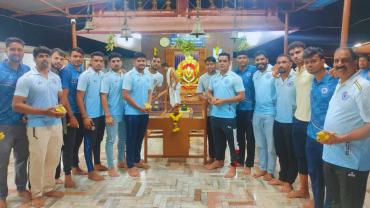Kabaddi's recognition as Medal Sport in Asian Games
Kabaddi has a rich history, say, around 4000 years old. The sport has been a part of India's rich culture for several thousand years. The sport was initially played like an exercise those days and it was never a competitive sport those days. The sport, however, lost its grip in recent times and the sport almost lost popularity.
Recently, Pro Kabaddi League hyped up the game and revolutionalized the sport. However, the sport's introduction in Asian Games was the major reason why Pro Kabaddi League was initially formed. Kabaddi's entry into the Asian Games certainly was a massive boost in improving its popularity.
If you are a participant in the Asian Games, the chance of getting sponsorship and money is easier and if you are an Asian Games medallist, there is a huge chance of making a living out of it. Kabaddi became an easier route for countries like India to grab the medal at the Asian level.
So, the push to make Kabaddi an official medal sport in the Asian Games was more. From 1951 to 1982, the sport was played at the Asian Games level as a demonstration sport. Kabaddi soon became a regular medal sport in the Asian games because of its gaining popularity.
The first edition of the Kabaddi in the Asian Games was in 1990 in Beijing, China. Since then, the men's kabaddi event became a regular sport in Asian Games. Now, not every nation played Kabaddi as India did. Therefore, it was comparatively easier for India to grab the gold medal in the Games.
In the 1990 edition of Kabaddi in the Asian Games, six teams competed in a round-robin format. India won the gold medal after finishing at the top of the points table. Notably, in the first edition in 1990, there were no knock-out matches. The team that finished top, India, was awarded the gold medal.
In 1994, at the Asian Games in Hiroshima, five teams participated. India remained unbeaten with four wins to clinch the gold medal after finishing on top.
The 1998 Asian Games witnessed seven teams. India once again finished at the top of the table with six wins to clinch the gold. Pakistan finished second in the group with four wins from six matches to win silver.
The 2002 edition of the Asian Games witnessed six teams. India finished at the top with five wins and won the gold medal. Bangladesh won the silver medal while Pakistan won the bronze medal.
In 2006, in Doha, a knock-out type play-off was introduced. The top-two teams featured in the gold medal match, while the teams that finished third and fourth competed in the bronze medal match. India defeated Pakistan in the final, while Iran defeated Bangladesh in the bronze medal match.
In 2010, for the first time, the Women's kabaddi team featured in Asian games. Also, the 2010 Asian Games was the first time where groups were added. In both men's and women's editions, seven teams participated and were divided into two groups. The top two teams from each group made it to the knockout stage. India won both men's and women's editions.
In the 2014 edition, India defeated Iran to clinch the medal in both men's and women's finals. Apart from India, Iran dominated the group stage and entered the final. However, they could not defeat India, which stayed unbeaten throughout the edition.
The 2018 edition was a bit different in terms of results. For the first time, India lost in the Asian Games. At first, the men's team lost to South Korea in the group stage, and then, in the semi-final, Iran defeated India to create history. In the women's edition, India reached the final, but Iran proved too good for them as India had to settle for the Silver medal.
The upcoming edition of the Asian Games will take place in China, and India will be keen to regain the top spot, which they held right from day one of the Asian Games until the last edition.
- 88343 views













